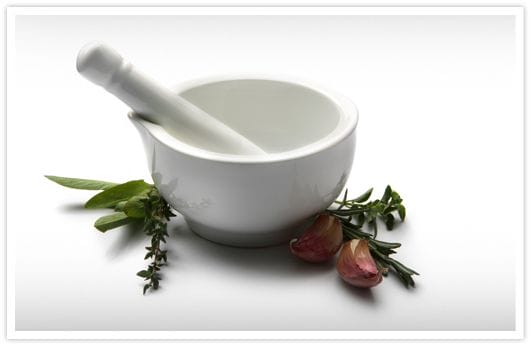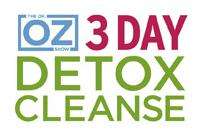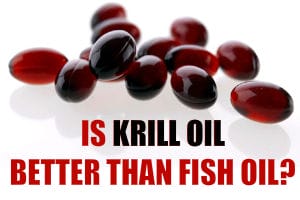If you knew how your food is produced, then surely you would make different food choices. Dr. Oz discusses a food issue that would help you make good choices. Some farmers in America are raising pigs using a drug that is banned in many countries. In this episode, you will know exactly what you need to know to shop for the right pork. Dr. Oz invited Core Expert, Mark Schatzker, to explain how the feed additive that farmers use affects pigs, and consequently, the pork we eat. Schatzker is also a journalist and author of the book, “The Dorito Effect”.

How Ractopamine (feed additive) affects pigs and the pork we eat!
Ractopamine is the additive that farmers use in raising their pigs. This causes the pigs to grow bigger and develop more meat, and not fat. If the meat has no fat in it, it is going to be tough. During meat processing, they will inject water and flavors into the meat to give it a moist taste. On the other hand, pigs that are raised without Ractopamine, that is those that are raised the old-fashioned way, are smaller and have more fat. If the consumers would know what is done to their pork, it is certainly frustrating that they think they are paying for something because of its supposed value, but are actually paying a lot of money for water.
Dr. Oz explains that there are health issues with Ractopamine, especially for pigs. And, we should know about this because it is actually a similar drug that is used in humans, and this chemical is beta-antagonist. It puts weight on you. In the same manner, pigs get bigger and faster with this drug, and they have increased muscle gain, especially at the end of their lives. This is similar to performance-enhancing drugs that are used by bodybuilders. These drugs are illegal for use in competitive sports for the reason that they put muscle in athletes.
Pigs with Ractopamine grow 10 percent faster and so, farmers gain 3 to 5 dollars more per pig. This means that the more the meat, the more the money. Pigs have a very rapid metabolism for this drug which means that they grow very quickly. Consumers should not see very much of this type of meat on the shelves when shopping for pork.
On the contrary, while Ractopamine is widely used among American farmers, many countries around the world have banned its use. Ractopamine is banned in all of Europe, Russia, and China. Consider the example of China. They tested American pork and they found Ractopamine residue in the meat. China has a zero-tolerance policy for this drug, so they do not want American pork. Last year, pork exports to China went down by 20 percent. That is worth more than a hundred million dollars. So what does this say about the value of 3 dollars to 5 dollars for a whole pig? Suddenly, it is not so valuable anymore.
Dr. Oz reached out to the National Pork Producers Council to get their perspective on the new pork label. Their comment was, “……There is no scientific evidence suggesting that Ractopamine poses a health concern, which is why FDA and the International Food-Safety Standard-Setting body…have approved it..” For the full statement from ELANCO, the makers of Ractopamine, click here
Schatzker reveals that as it is, “there is no industry-wide label right now, but there is just one organic producer who got his label approved. So, we are moving towards having this ‘no-Ractopamine’ label. Consumers are more concerned than ever about what’s in their food…if they start hearing about Ractopamine, a well-kept secret, they will not like the sound of a drug that is fed to pigs that are cruel to them, that makes the meat taste worst, and that could be getting in their own bodies. So, I think this is the beginning of the end for Ractopamine.”
Dr. Oz adds, “We don’t know about the effects of Ractopamine for sure in humans, but I don’t want any unknowns in our food. So it’s important to know the labels and it’s important to make a choice for yourself…”
In this segment, Mark Schatzker explains all of the words on a bacon package’s food label.
- The “Certified Organic” label will not have Ractopamine. This label is valid.
- The “Raised Without Hormone” label is an empty buzzword just trying to get your attention, and trying to get you to buy the pork. But this label makes no difference.
- “Raised Without Antibiotics” is something you need to take at face value. Pigs should not be fed antibiotics, but farmers feed pigs these drugs so they grow faster. They grow big and fast because they don’t get sick. So, if you see this label, you know that that pig has been raised to a higher level of animal husbandry.
- The “Natural” label does not really mean anything. It refers to post-processing which refers to the preservatives or additives used, or not used, in processing.
- The “Pastured” label is something you need to pay attention to. Pastured means this is how the pig is raised—on a pasture. They get to live outdoors, nose around the dirt, and eat foods that pigs are supposed to eat.
In addition to these, Dr. Oz explains the ingredients to look for when buying bacon. The rules for buying bacon are:
- The lesser the ingredients on the back of the label, the better. If you buy the less expensive bacon, make sure it is really bacon. Look for these ingredients only:
- Pork
- Water
- Sea salt
- Natural sugar (or brown sugar/maple syrup)
- Celery juice powder
- Try lean pork tenderloin instead for an #ozapproved breakfast. Make your meat into a hash to make your dish more exciting and flavorful.
Look out for the pork label on meat packages. Make a wise choice based on these labels. Do not just think of saving money when buying meat. It is more important to save your health in the long run. Discover the more surprising truths about food and flavor in The Dorito Effect




